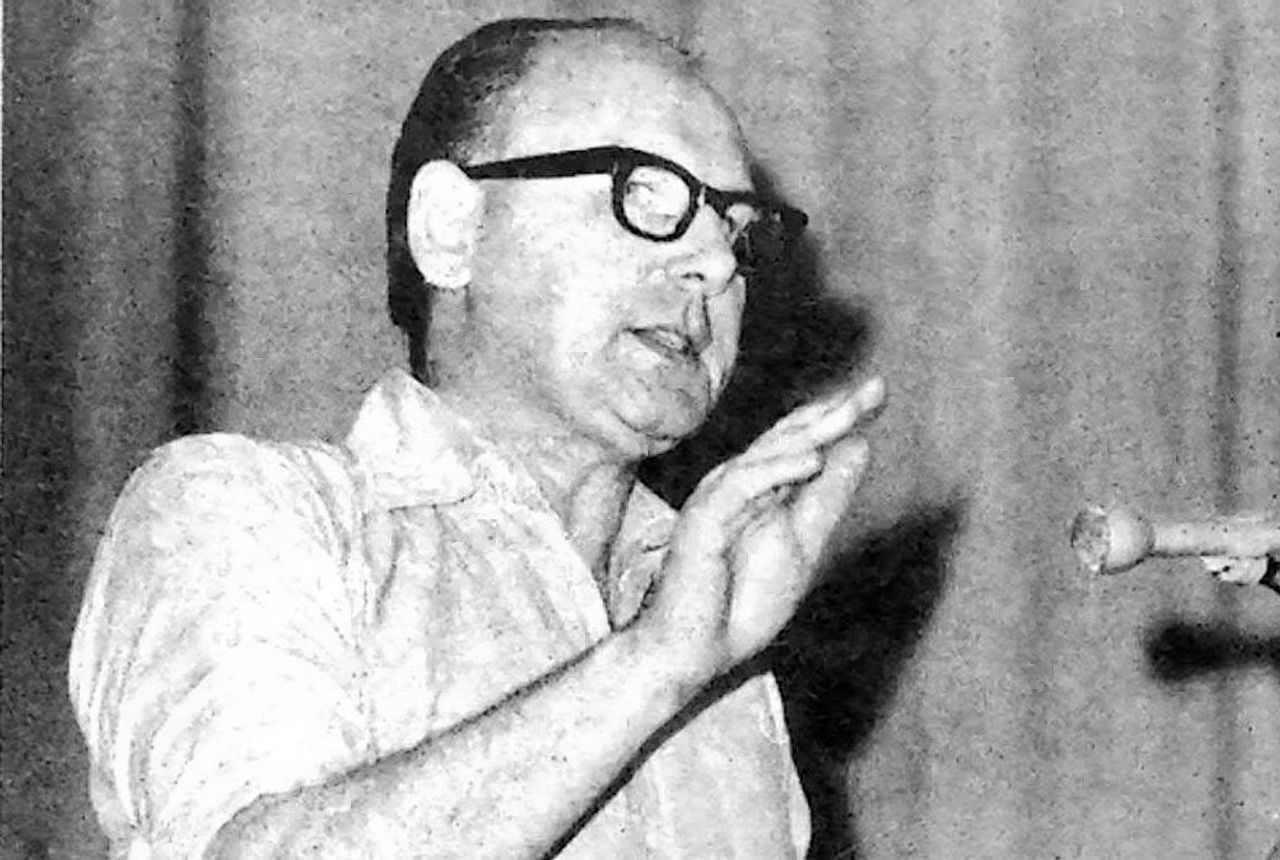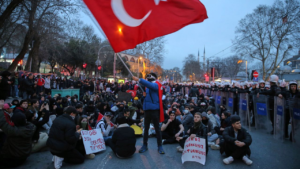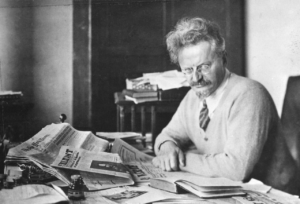From the Theoretical arsenal of the ICFI.
Opportunism and Empiricism by Cliff Slaughter.
By Sanjaya Jayasekera.
We invite our readers and comrades of the Trotskyist movement to study one of the most valued pieces of theoretical contributions in the literature of the International Committee of the Fourth International (ICFI), “Opportunism and Empiricism” by Cliff Slaughter of the British Socialist Labour League (SLL). This document was written and published in March 1963 as a polemic against theoretical derailments made by Joseph Hansen of the Socialist Workers Party (SWP) of the United States in his piece “Cuba – The Acid Test: A reply to the Ultra-left Sectarians”. The latter, published in November 1962, was in turn a reply to the document entitled “Trotskyism Betrayed”1 issued by SLL.

The developments in the ICFI that led to this document are historically significant as it paved the way for the ICFI to return to the lessons of Trotsky’s struggle in defense of Marxism against pragmatism of the petty bourgeois tendency led by the Burnham- Shachtman-Abern faction of the SWP, in 1939-402.
Though the immediate political issue dealt with in these documents centered on the question of the class nature of the state of Cuba after the 1959 Revolution – whether it was a workers’ state or not – and on the political characterization of the leadership of Fidel Castro, Slaughter’s document is essentially important in regard to the exposition of the Marxist method, dialectical materialism. Written in the backdrop of SWP’s course toward unprincipled unification with Pabloit International Secretariat (IS), ‘Opportunism and Empiricism’ also deals with and rejects Cannon’s pragmatism in respect of the Cuban missile crisis.
SLL document explains as follows: “Hansen leads the tendency which calls for ‘unification’ with a revisionist tendency on the basis of purely practical political agreement on immediate tasks. From this point of view he rejects an examination of the history of the split [1953] and of the differences between the tendencies. This is only part of his substitution of impressionism for scientific analysis…. What is the methodological basis of Hansen’s approach here? The dominant question for him is always ‘what will work best?’- asked always from the narrow perspective of immediate political appearances. This is the starting point of pragmatism, the ‘American’ development of empiricism by Pierce, James and Dewey. It leads Hansen to advocate unity with the Pablo group because that will ‘work’ better as an attraction for people pushed in a ‘leftward’ direction, even if the causes of the split are never clarified.”
Slaughter points out that Hansen’s contribution shows explicitly the empiricist and anti-dialectical basis in the method adopted by the opportunist tendencies in the SWP, as well as their unprincipled and un-historical approach to the problem of unification and development of the world Trotskyist movement.
Slaughter summarizes the exercise of Marx to extract the dialectical materialist method of thought through the struggle against Hegel’s dialectical idealism: “The ‘materialism’ to which empiricism leads, according to Hegel, is of course mechanical materialism, which remains unable to explain the role of consciousness and the material unity of the world, including human action and thought. This ‘defect of all hitherto existing materialism’, as Marx called it, meant that ‘it could not be consistently carried out, and it left the door open to dualism and subjective idealism. Hegel overcame the dichotomy of subject and object, introducing a unified conception of a dialectically interconnected whole, by making spirit the content of all reality. Marx had only to ‘stand him on his head’ to arrive at dialectical materialism. This is in fact how dialectical materialism developed, through contradiction…”
Acceptance of “surface facts” of a “given circumstances” is the method of pragmatism in philosophy, while for Marxists, “facts” have a class and historical content, because the class struggle and exploitation are the content of all social phenomena. At the political level, it illustrates the capitulation and adaptation to existing forces, existing forms of consciousness in the political movement. “When we attack empiricism we attack that method of approach which says all statements, to be meaningful, must refer to observable or measurable data in their immediately given form.”
Four Reasons
While this document obtains no specific hierarchical value in the enormous theoretical contributions within the movement, for several reasons, it is an essential reading for the cadre of the ICFI and for any Marxist revolutionary worker and youth, who need to fight under the leadership of ICFI and its sections. First, this document elaborates and practically demonstrates the deployment of the Marxist method of theoretical thinking – the method of dialectical materialism which analyzes the events on a class basis – against the petty-bourgeois impressionistic and pragmatic approach to understanding the objective world, the method of empiricism or pragmatism, which essentially has a class role. It is a lucid expression of the application of dialectical materialism, which only can explain the world, because ”it includes a materialist explanation of the development of our concepts as well as of the material world which they reflect”.
Dialectical analysis requires seeing facts, events in the context of a whole series of interrelated processes, as parts of a “motion picture” 3, not as finished, independent entities about which ‘practical’ decisions have to be made. In the sphere of politics, Slaughter states, such analysis means to see each situation in terms of the development of the international class struggle, global economy and geo-politics, to evaluate the policies of the various political forces towards this situation in terms of their relation to these class forces and to their whole previous course.
This document is an ideal example for any revolutionary fighter to understand what real polemics is – the second reason. This series of polemics between the SLL and the SWP leadership demonstrates the gravity, depth, seriousness and theoretical exhaustiveness that polemics within our movement had contained in its rich traditions. Polemics is the mark of the revolutionary party. To defend this tradition and develop its historical heritage is the primary task of all sections of the International Committee and its cadre, as a precondition for the resolution of the crisis of revolutionary leadership of the working class. Building the socialist culture within the working class has no better sense than advancing their consciousness to this higher level of thinking, against the methods of subjective idealism and objectivism, which is the theoretical foundation of Pabloite pragmatic opportunism4, and backwardness of bourgeois spontaneity.
Thirdly, this document is important to the working class of this region, specially because it vividly explains the methodical roots of the opportunist politics of the Lanka Sama Samara Party (LSSP) culminating in its “Great Betrayal” sixty years ago, sanctioned by Michael Pablo, Earnest Mandel, their British mentors, and Hansen, entering into a coalition government with Ceylonese bourgeoise, one year after reunification. This was the disastrous consequence of the SWP’s embrace of Castro’s petty-bourgeois July 26 Movement as a substitute for Trotskyism and its proclamation that a workers’ state had been established in Cuba, leading to the reunification with the Pabloites and the establishment of the United Secretariat. They claimed that the completion of the democratic revolutions in the backward countries did not require the socialist revolution and the establishment of the proletarian dictatorship. These ideologies have been lingering within the labor movement all throughout in multitude of forms, promoted today by the pseudo-left and other middle class tendencies.
Fourthly, Slaughter’s explanation of pragmatic foundations of political opportunism and eventual vindication of these positions within the movement, ironically even through Slaughter himself, has enduring relevance to the present day. Our cadre of the Socialist Equality Party (SEP), the Sri Lanka section of the ICFI, would find these theoretical foundations helpful for them to understand the long time alienation of the party from proletarian struggles, leading to its current stagnation, for which the party leadership blame the purported insufficiency in the ripening of the objective conditions, and lack of socialist class consciousness within the working class. It has long shown its opportunist abstentionism from the active class struggle5, founded on their skepticism over the potential of educating an advanced section of the working class in a backward country, Sri Lanka and in the region, as Marxist revolutionaries. This approach has been, for over three decades, conditioned by the mass consciousness affected by then-prevalent demoralization and subjugation of socialist culture since the collapse of the Soviet regime in 1991 and the brutal suppression of a rural youth uprising in the South, the racial divisions instigated by the ruling classes to divide the working class of the country, the three-decade long civil war in the North and East, the growth of the influence of postmodernist tendencies in academia and in the middle class youth, and the growth of right-wing and left-wing populism, to mention only the most significant “surface facts”6.
Opportunism is the political expression of the methodology of pragmatism, which Slaughter states is the transatlantic younger brother of English empiricism, that serves the interests of the petty-bourgeoise. The opportunists, who abandon the interests of the working class, harbor disbelief in the revolutionary potential of the independent mobilization of the working class for power7 and reject the Marxist method. Pragmatism is politically reactionary and must be rejected.
Marxist Method
In Opportunism and Empiricism, Slaughter delves into how empiricism and opportunism within the Marxist movement threaten revolutionary theory and action. He points out that these tendencies undermine the scientific integrity of Marxism by disregarding the method of dialectical materialism.
Opportunism is a political tendency to prioritize short-term, pragmatic gains over the strategic goals of socialist internationalism, which often leads to political compromises and capitulations to bourgeoisie that dilute Marxist principles. By yielding to immediate pressures rather than upholding an orthodox Marxist program, opportunism weakens the working-class movement and opens the door to ideological drift. Opportunists adapt their positions to align with popular sentiment or political expediency rather than the materialist analysis required for revolutionary leadership. This is a serious threat to the revolutionary Marxist movement, as it risks transforming them into reformist entities that merely seek to manage capitalism, not overthrow it.
Empiricism, the method of opportunism, is characterized as a reliance on practical experience and observable facts without a sufficient theoretical framework. Slaughter critiques empiricism for its tendency to neglect the theoretical underpinnings of Marxism, particularly dialectical materialism, in favor of immediate, surface-level observations. This approach can cause a lack of critical depth, as empiricists may fail to grasp the historical and dialectical processes that shape social realities. Without this method, Slaughter warns, Marxists risk being swayed by appearances and thus miss the underlying dynamics of class struggle and capitalist development.
The document emphasizes that Marxism is a scientific worldview that relies on a dialectical understanding of history and society. Dialectical materialism, the foundation of Marxist theory, provides a means of understanding the contradictory forces at play in capitalist society. This approach does not merely observe and react to social phenomena but seeks to uncover the underlying processes that drive historical change. It is through dialectics that Marxists can grasp the interconnectedness of social forces and foresee the potential outcomes of various political strategies. When Marxists abandon dialectical materialism, they lose this analytical power and are left with a fragmented view of reality.
A key point in Slaughter’s critique is that both opportunism and empiricism lead to revisionism, and to passive form of politics. Without a theoretical framework, opportunists and empiricists are less likely to challenge the status quo fundamentally. Instead, they may resort to reactive or reformist strategies, focusing on incremental improvements within the capitalist system rather than the revolutionary overthrow of capitalism. This passive stance reflects a retreat from Marxism’s revolutionary aims, as it reduces the role of the working-class party to that of a reactionary mediator, rather than a revolutionary force.
The influence of empiricism and opportunism on party leadership and internal organization is significant, in as much as that such leadership may tend to vacillate in the programme, drifting to centrist standpoints. Opportunistic leaders may avoid ideological struggle within the party, opting instead to purging or accommodating differing views for the sake of unity or immediate goals. This approach prevents the development of a clear and consistent Marxist program. Empiricist leadership, meanwhile, might prioritize practical tasks over theoretical education, leaving members ill-equipped to understand the broader purpose of their work. The combined effect of these tendencies is a weakened party structure, where members are less capable of engaging critically with Marxist theory and are more susceptible to ideological deviations.
While some philosophical concepts could have been discussed in more depth, the document retains focus on the two tendencies mentioned in the title. Slaughter stresses that the revolutionary party must resist the temptation to adapt to short-term pressures or popular trends, which have their own class base. Instead, the revolutionary party should focus on building a theoretically sound program that can guide the working class in its struggle against capitalism. This means upholding dialectical materialism as the core of Marxist analysis and strategy, ensuring that revolutionary action is informed by a scientific understanding of society and history.
We call upon our comrades, workers and youth to engage in serious debates on these topics and to engage in the practical exercise of understanding the manner the ICFI is exercising this method in their daily action and publications in the World Socialist Web Site. Our platforms are open for such debates.
Join SLLA (RLF of SEP-SL), Build SEP!
- Trotskyism Betrayed, reprinted in Trotskyism Versus Revisionism, Volume Three, (New Park Publications, 1974) p. 235.
↩︎ - Leon Trotsky, In Defence of Marxism, 1939 <https://www.wsws.org/en/special/library/in-defense-of-marxism-leon-trotsky-1939/00.html>
↩︎ - Leon Trotsky, The ABC of Materialist Dialectics, December 1939.
<https://www.marxists.org/archive/trotsky/1939/12/abc.htm >
↩︎ - In Trotskyism Versus Revisionism, Volume One (London: New Park, 1974), pp. 299-300.
↩︎ - In Trotskyism Versus Revisionism, Volume One (London: New Park, 1974), pp. 299-300.
↩︎ - SLLA will illustrate our analysis on this important subject in the future documents.
↩︎ - ”Underlying all forms of opportunism is a lack of political confidence in the possibility of winning the working class to the program of Marxism, which, in the final analysis, represents a rejection of the revolutionary role of the working class as the gravedigger of capitalism and the builder of a new socialist society.” David North, 1989, Gerry Healy and his place in the history of the Fourth International. ↩︎









